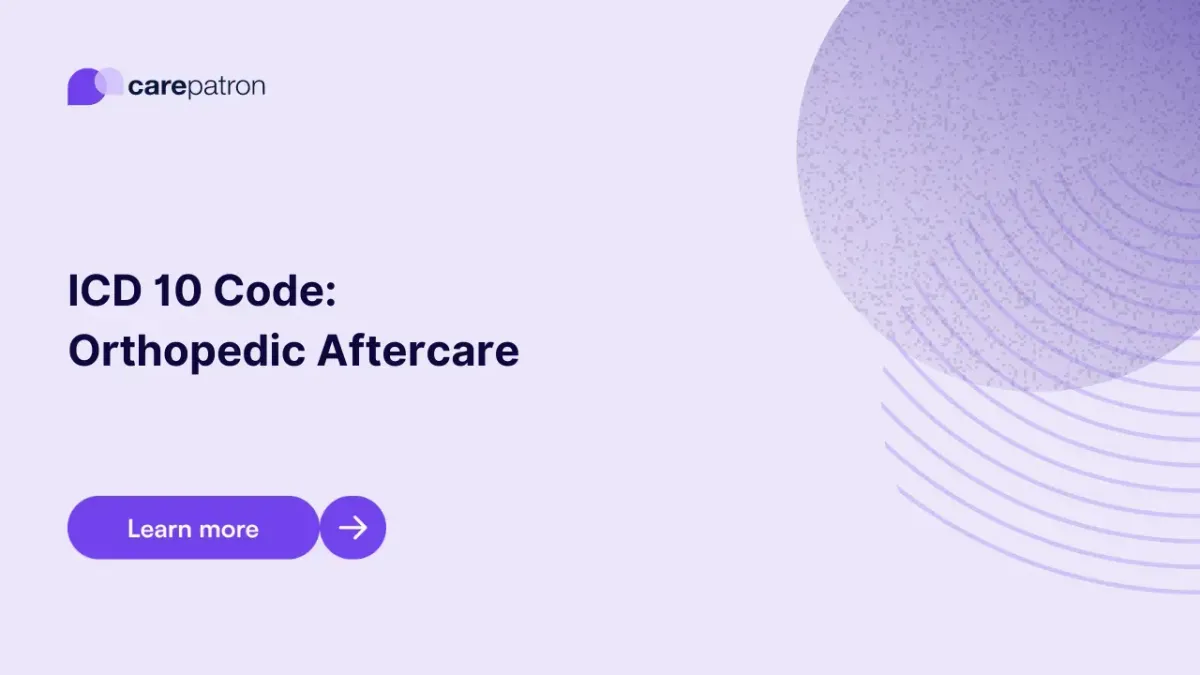
Orthopedic Aftercare ICD-10-CM Codes | 2025
Learn how orthopedic aftercare ICD-10-CM codes document recovery after surgery or trauma and support billing, physical therapy, and follow-up care.
Use Code
Commonly asked questions
Use an orthopedic aftercare ICD-10 code when a patient is receiving follow-up care after an orthopedic surgery, fracture repair, or musculoskeletal procedure. These codes indicate that the patient is not being treated for a current injury but is instead in the recovery or rehabilitation phase.
Yes, orthopedic aftercare ICD-10-CM codes are fully billable and valid for use in clinical documentation and insurance claims. They support reimbursement by clearly indicating ongoing treatment and follow-up care after a procedure or surgery.
Common treatments include physical therapy, pain management, wound care, and routine follow-up evaluations. These services help ensure proper healing, restore function, and prevent post-operative complications.
EHR and practice management software
Get started for free
*No credit card required
Free
$0/usd
Unlimited clients
Telehealth
1GB of storage
Client portal text
Automated billing and online payments
